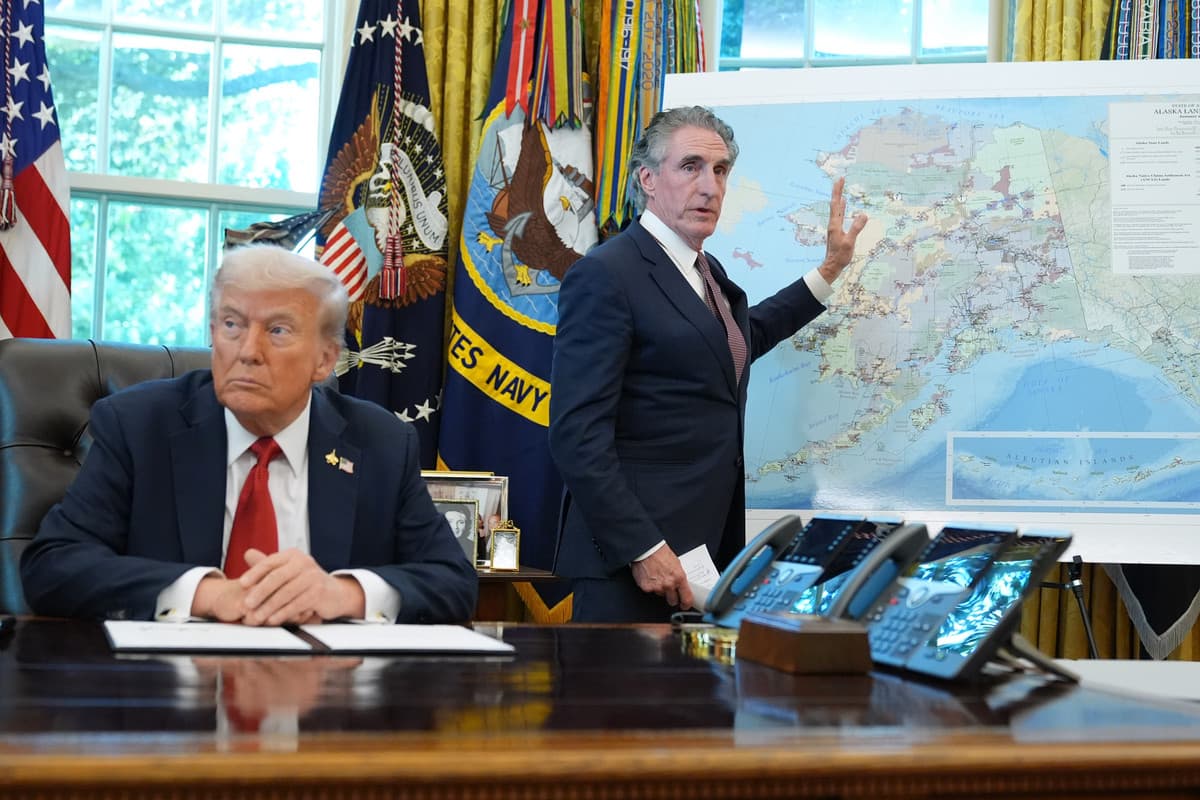We're loading the full news article for you. This includes the article content, images, author information, and related articles.
US President Donald Trump is reportedly exploring all options, including invoking the Insurrection Act, to deploy military forces domestically, citing rising crime rates in American cities.

US President Donald Trump is actively considering invoking the Insurrection Act, a federal law that would permit him to deploy military troops on American soil to address domestic unrest. This was confirmed by Vice President JD Vance on Sunday, October 12, 2025, during an interview on NBC News' Meet the Press. Vance stated that "the president's looking at all of his options" amidst ongoing legal challenges regarding the use of federal forces.
The discussions within the White House are reportedly driven by concerns over what Vance described as "crime out of control in our cities." This potential move could have far-reaching implications for civil liberties and the balance of power in the United States, a nation whose political developments are closely watched in Kenya due to diplomatic and economic ties.
The Insurrection Act, originally signed into law in 1807 by President Thomas Jefferson, grants the US President the authority to deploy the military or federalise National Guard troops within the United States to quell insurrections, suppress civil disorder, or enforce laws when they are obstructed. This act serves as a critical exception to the Posse Comitatus Act of 1878, which generally prohibits the use of federal military forces for domestic law enforcement purposes.
Historically, the Insurrection Act has been invoked in response to various crises, including enforcing civil rights laws during the 1960s and during the 1992 Los Angeles riots. Its invocation allows troops to undertake law enforcement duties such as arrests and searches, functions typically outside their purview.
The potential invocation of the Insurrection Act raises significant legal and governance questions. Critics, including civil rights groups, have long warned that the act grants broad presidential authority that could be open to abuse, as it lacks explicit constraints from Congress or the courts on what constitutes an obstruction or rebellion, or what actions military forces may take once deployed.
While governors generally hold authority for maintaining order within their states, the Insurrection Act allows for federal intervention, even potentially against the will of state governments in certain circumstances. This tension between federal and state authority has been a recurring theme in debates surrounding the act's use.
Vice President Vance justified the consideration of the Insurrection Act by highlighting a reported "1,000% increase in violent attacks" against Immigration and Customs Enforcement (ICE) agents. He asserted that such measures might be necessary to protect those enforcing immigration laws.
Analysts suggest that this development could influence public debate and policy execution, with calls for clarity on timelines, costs, and safeguards should the act be invoked. The move has also sparked alarm among critics who view it as a potential overreach of executive power.
While Vice President Vance cited an increase in attacks on ICE agents, overall violent crime rates in the US have shown a mixed trend. According to USAFacts, in 2024, for every 100,000 people, there were 359 violent crimes and 1,760 property crimes. The combined violent and property crime rate in the US fell by 8.4% in 2024 compared to the previous year, driven by a 5.4% decrease in violent crime and a 9% decrease in property crime. The FBI also reported a 4.5% decrease in national violent crime in 2024 compared to 2023 estimates, with murder and non-negligent manslaughter decreasing by an estimated 14.9%.
The potential deployment of military forces in civilian settings carries inherent risks, including the possibility of increased use of force and the erosion of trust between communities and law enforcement. For Kenya, a nation that prioritises peace and security in its foreign policy, such developments in a key international partner are observed with interest. Kenya's foreign policy objectives are informed by a desire for a peaceful, united, and prosperous country, and it actively supports regional and international efforts to find lasting solutions to conflict and terrorism.
Key uncertainties remain regarding the specific conditions under which the Insurrection Act might be invoked, the scope of military operations, and the duration of any such deployment. The exact legal interpretations and potential challenges to such an action are also subject to ongoing debate. The vagueness of the outdated law has been highlighted as a concern, with calls for reform to prevent potential abuses of power.
Observers will be closely monitoring any official announcements or executive actions from the US White House regarding the Insurrection Act. Further legal challenges and public reactions to these discussions will also be critical indicators of future developments. The broader implications for civil-military relations and the enforcement of federal law in the US will remain a significant focus.
Keep the conversation in one place—threads here stay linked to the story and in the forums.
Sign in to start a discussion
Start a conversation about this story and keep it linked here.
Other hot threads
E-sports and Gaming Community in Kenya
Active 9 months ago
The Role of Technology in Modern Agriculture (AgriTech)
Active 9 months ago
Popular Recreational Activities Across Counties
Active 9 months ago
Investing in Youth Sports Development Programs
Active 9 months ago